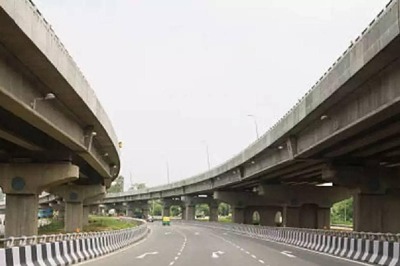
views
New Delhi: The government’s plan to bring 10% reservation in jobs and education for the economically weaker sections in General category goes against the basic tenets of the Constitution, the rationale behind quotas and is subject to legal challenges, say experts.
This quota will be over and above the 50% reservation that currently exists. The quota, for which the government moved Constitution (124th Amendment) Bill in the Lok Sabha on Tuesday, is likely to be availed by those whose annual income is below Rs 8 lakh and those who have not more than five acres of land.
An economically weaker section is defined as someone whose annual income is below Rs 8 lakh, agricultural land is less than 5 hectares, residential house is smaller than 1,000 square feet, and residential plot is smaller than 109 yards in notified municipality and smaller than 209 yards in non-notified municipality area.
Speaking to News18, experts weighed in on what the move means for caste politics ahead of general elections and whether it’s in tandem with the Constitution.
‘Against Basic Structure of the Constitution’
“The Constitution took into account the social structure of the country, which was inherited over the centuries and still existed in India -- namely the caste system. It took into account the caste of the people who were deprived of any opportunity for education and modern employment. So, through the social process, reservation was provided for such people who were at the receiving end of the social discrimination. These people are of the caste, which were the victims of untouchability, the caste which are distinct and remotely located like Schedule Tribes.
The Constitution did not provide similar provisions for those who were only poor. It did not take into account the economic reasons to provide reservations to those poor. But that does not prevent the government from giving them other help through subsidies, scholarships, loans, economic advancement etc. Even if the constitutional amendment is made, it is challengeable on the grounds that it is against the basic structure of the Constitution. It cannot be constitutionally done because the Constitution only provides for the victims of the caste system who were prevented from opportunities from mobility to modern areas. This is not in line with the basic structure of the Constitution.”
-- PS Krishnan, Social Justice Expert
‘This is Election Politics, Not Certain It Will Pay’
“The move has come in an election year, it is election politics, but very difficult to say how it will pan out. One can’t say if it will pay the government positively in the electoral battle. Moreover, it is not easy to transform things so easily. It won’t be easy to transform into a category because you need to classify the economically backward in upper castes. I don’t know what kind of indicators have been developed for this category. The government has defined it as someone whose annual income is below Rs 8 lakh, but what has gone into this classification is not known.”
-- Badri Narayan, Social Scientist at GB Pant Social Science Institute in Allahabad
‘Just an Electoral Jumla’
“The very idea giving of reservations to upper caste is against the notion of reservation. Reservation was started for people who did not have socio and cultural resources to compete with others. It is not a poverty alleviation program, which is universal in nature. Globally, affirmative action is identity-based, not class-based. The idea of social justice was challenged earlier as well when the ‘creamy layer’ was defined in SC/STs.
The very idea of reservation should be based on identities which have been discriminated against. There should be evidence of discrimination. In this new scheme of things, one brother can be rich and another poor as the determinant is not identity or social wrongs. Even if this gets the court’s clearance, it is going to be very hard to implement it on ground. Employment in India is informal. Nobody keeps account. This is only electoral jumla. It means nothing theoretically, politically, and practically.”
-- Surinder S Jodhka, Professor of Sociology at JNU



















Comments
0 comment